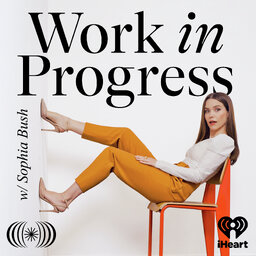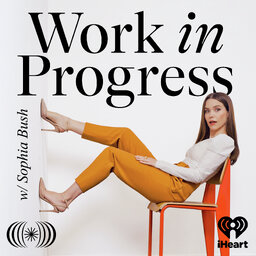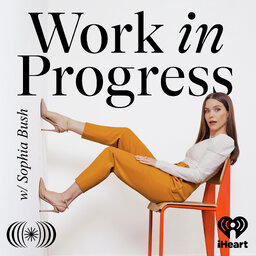Rainn Wilson is an actor, comedian, writer, co-founder of SoulPancake, and podcast host. He joins Sophia on "Work In Progress" to share stories from his childhood, discuss how he got into acting and landed the role of Dwight Schrute, talk about the meaning of religion in his life, the importance of connecting with each other, and much more! Executive Producers: Sophia Bush & Sim Sarna Supervising Producer: Allison Bresnick Associate Producer: Caitlin Lee Editors: Josh Windisch and Matt Sasaki Music written by Jack Garratt and produced by Mark Foster Artwork by Kimi Selfridge This show is brought to you by Brilliant Anatomy.
 Work in Progress with Sophia Bush
Work in Progress with Sophia Bush


